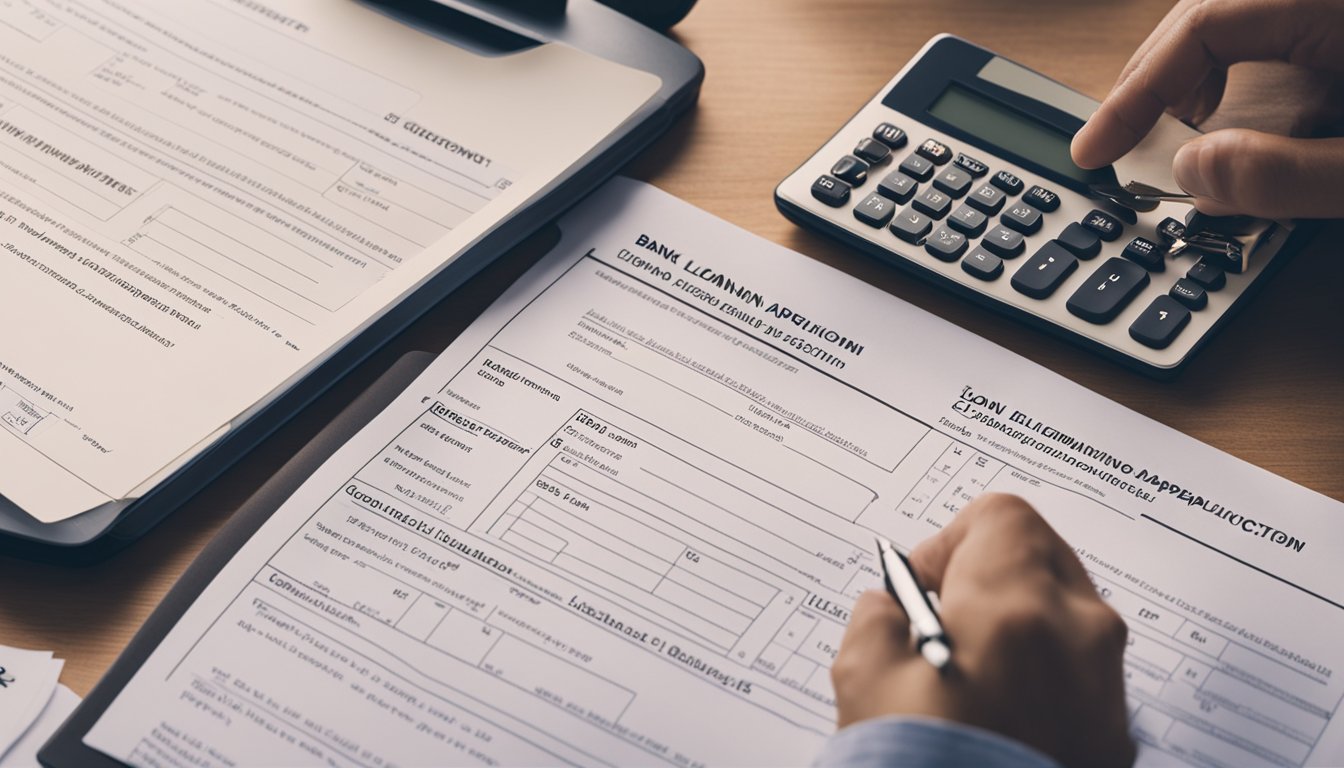If you have multiple loans with different lenders, it can be challenging to keep track of your repayments and manage your finances effectively. Debt consolidation is a popular way to simplify your finances and save money on interest rates and monthly repayments. Consolidating your loans involves taking out a new loan to pay off your existing debts, leaving you with a single, more manageable monthly repayment.

In Singapore, there are several options for debt consolidation, including personal loans, balance transfer credit cards, and debt consolidation plans (DCPs) offered by financial institutions. Each option has its pros and cons, and it’s essential to understand the differences to choose the best option for your needs. Depending on your financial situation, consolidating your loans could be a cost-effective way to manage your debts.
Key Takeaways
- Debt consolidation can simplify your finances and save you money on interest rates and monthly repayments.
- There are several options for debt consolidation in Singapore, including personal loans, balance transfer credit cards, and debt consolidation plans.
- It’s important to compare loan options, understand the application process, and manage your consolidated debt carefully to avoid potential pitfalls and consider all factors before deciding to consolidate your loans.
Understanding Debt Consolidation in Singapore

If you’re struggling to keep up with multiple loans or credit card debts, debt consolidation might be a good option for you. Debt consolidation is the process of combining multiple debts into one loan or payment. In Singapore, the most common form of debt consolidation is through a Debt Consolidation Plan (DCP).
What Is a Debt Consolidation Plan (DCP)?
A DCP is a debt management tool that allows you to combine all your existing unsecured credit card debts and personal loans into a single loan with a lower interest rate. By consolidating your debts, you can simplify your finances and potentially save money on interest charges.
Benefits of Debt Consolidation
The main advantage of debt consolidation is that it can help you save money on interest charges. With a DCP, you can enjoy a lower interest rate than what you’re currently paying on your credit card debts and personal loans.
Consolidating your debts can also simplify your finances. Instead of keeping track of multiple loans and credit card bills, you’ll only have to make one payment each month. This can make it easier to manage your finances and avoid missed payments or late fees.
Eligibility Criteria for DCP
To be eligible for a DCP, you must be a Singapore citizen or Permanent Resident with an annual income of at least $30,000. You must also have net personal assets of less than $2 million.
It’s important to note that not all debts are eligible for consolidation. For example, secured loans like home loans and car loans cannot be included in a DCP. Additionally, you must not have any existing DCPs with other banks.
In conclusion, debt consolidation can be a useful tool for managing your finances and reducing your debt burden. If you’re considering a DCP, be sure to check the eligibility criteria and compare the interest rates and fees of different banks before making a decision.
Comparing Loan Options

When it comes to consolidating your loans in Singapore, there are several loan options available to you. Each option has its own unique features, and it is important to compare them to determine which one is the best fit for your financial situation. Here are some factors to consider when comparing loan options:
Secured vs Unsecured Loans
One of the first things to consider when comparing loan options is whether you want a secured or unsecured loan. Secured loans require collateral, such as your home or car, to secure the loan. Unsecured loans do not require collateral, but they often come with higher interest rates.
Interest Rates and Fees
Interest rates and fees are also important factors to consider when comparing loan options. Look at the interest rate and compare it to other loans to determine if it is competitive. Additionally, be sure to look at any fees associated with the loan, such as processing fees or early repayment fees.
Loan Tenure Considerations
Loan tenure is another factor to consider when comparing loan options. Longer loan tenures may result in lower monthly payments, but you will end up paying more in interest over the life of the loan. Conversely, shorter loan tenures may result in higher monthly payments, but you will pay less in interest over the life of the loan.
It is important to compare the interest rates, fees, and loan tenures of different loan options to determine which one is the best fit for your financial situation. Be sure to consider whether you want a secured or unsecured loan, and take into account any collateral you may need to provide. By doing your research and comparing loan options, you can find the best loan to consolidate your debts and improve your financial situation.
Financial Institutions Offering DCPs

If you’re considering a Debt Consolidation Plan (DCP) in Singapore, it’s important to know which financial institutions offer them. Here are some of the banks and non-bank financial institutions that provide DCPs:
Banks and Their DCP Offers
- Citibank: Citibank offers a DCP that allows you to consolidate your credit card debts and unsecured loans into one account with a fixed interest rate.
- Standard Chartered: Standard Chartered Bank (Singapore) Limited offers a DCP that allows you to consolidate your unsecured credit facilities outstanding into one single account with a fixed interest rate.
- OCBC: OCBC Bank offers a DCP that allows you to consolidate your outstanding balances on credit cards and unsecured credit facilities into one account with a fixed interest rate.
- HSBC: HSBC offers a DCP that allows you to consolidate your outstanding balances on credit cards and unsecured credit facilities into one account with a fixed interest rate.
- DBS: DBS Bank offers a DCP that allows you to consolidate your outstanding balances on credit cards and unsecured credit facilities into one account with a fixed interest rate.
Non-Bank Financial Institutions
- CIMB: CIMB Bank offers a DCP that allows you to consolidate your outstanding balances on credit cards and unsecured credit facilities into one account with a fixed interest rate.
- HL Bank: Hong Leong Finance offers a DCP that allows you to consolidate your outstanding balances on credit cards and unsecured credit facilities into one account with a fixed interest rate.
- Other Financial Institutions: In addition to banks, other financial institutions such as licensed moneylenders also offer DCPs. However, it’s important to ensure that the financial institution is licensed by the Ministry of Law before applying for their DCP.
Overall, there are several financial institutions in Singapore that offer DCPs. It’s important to compare the interest rates and terms of each DCP offer before choosing the one that best suits your needs and financial situation.
Application Process for Debt Consolidation

If you have decided to proceed with a debt consolidation plan, the application process is relatively straightforward. In this section, we will guide you through the various steps involved.
Required Documents
To apply for a debt consolidation plan, you will need to provide several documents to the financial institution of your choice. These documents include:
- Your NRIC (National Registration Identity Card)
- Income documents such as your latest payslip or CPF statement
- Credit Bureau report
- Confirmation letter from your current creditors stating your outstanding balances
It is important to note that the required documents may vary depending on the financial institution. Therefore, it is advisable to check with the institution beforehand to ensure that you have all the necessary documents.
Credit Assessment
Once you have submitted your application and the required documents, the financial institution will conduct a credit assessment to determine your eligibility for the debt consolidation plan. The assessment will take into account your credit score, income level, and other factors such as your existing debt obligations.
If you meet the eligibility criteria, the financial institution will offer you a debt consolidation plan. The plan will consolidate all your outstanding unsecured debts into one loan with a lower interest rate. This will make it easier for you to manage your debt and reduce your overall monthly payments.
In conclusion, the application process for a debt consolidation plan in Singapore is relatively straightforward. By providing the required documents and passing the credit assessment, you can consolidate your debts into one loan and reduce your monthly payments.
Managing Your Consolidated Debt

Once you have consolidated your loans, it is important to manage your consolidated debt effectively to avoid falling back into debt. Here are some strategies to help you manage your consolidated debt:
Repayment Strategies
One of the main benefits of consolidating your loans is that you can simplify your monthly payments. Instead of making multiple payments to different lenders, you only need to make one payment to your debt consolidation provider. This can make it easier to keep track of your payments and avoid missed payments.
To make the most of this benefit, you should consider setting up an automatic payment plan. This will ensure that your monthly payment is always made on time and you won’t have to worry about missing a payment. You can also consider paying more than the minimum monthly payment to reduce your debt faster.
Avoiding Future Debt
Consolidating your loans can help you get out of debt, but it’s important to avoid falling back into debt. To do this, you should create a budget and stick to it. This will help you control your spending and avoid overspending.
You should also review your spending habits and identify areas where you can cut back. For example, you could reduce your dining out expenses or cancel subscriptions that you don’t use. By reducing your expenses, you’ll have more money to put towards paying off your debt.
Finally, you should consider working with a debt management professional to help you stay on track. A debt management professional can help you create a budget, develop a repayment plan, and provide advice on how to avoid future debt.
Potential Pitfalls and Considerations

Consolidating your loans can be an effective way to manage your debt, but it’s not without its potential pitfalls and considerations. Here are some things to keep in mind:
Understanding the Fine Print
Before you sign up for a loan consolidation plan, it’s important to read the terms and conditions carefully. Make sure you understand the interest rates, charges, and fees associated with the loan. Some lenders may charge a late payment fee if you miss a payment, so be sure to make your payments on time.
Risks of Consolidation
While consolidating your loans can be a great way to simplify your finances, it’s not without risks. For example, if you’re consolidating credit card debt, you may be tempted to run up your credit card balances again. This can lead to even more debt and financial trouble.
Another risk of consolidation is that you may end up paying more in interest over the long run. While consolidation can lower your monthly payments, it can also extend the life of your loan, meaning you’ll pay more in interest over time.
Overall, consolidation can be a great way to manage your debt, but it’s important to understand the risks and potential pitfalls before you sign up for a loan. Be sure to read the fine print, make your payments on time, and avoid running up your credit card balances again.
Frequently Asked Questions

How can a Debt Consolidation Plan save me money in Singapore?
If you have multiple loans with high-interest rates, you can end up paying more than necessary. A Debt Consolidation Plan (DCP) in Singapore can help you save money by combining all your outstanding balances into one loan with a lower interest rate. This makes it easier to manage your finances and pay off your debts faster.
What are the top benefits of choosing the Best Debt Consolidation Plan in Singapore?
The benefits of choosing the best Debt Consolidation Plan in Singapore include lower interest rates, a single monthly repayment, and a longer repayment period. This means you will have more time to pay off your debts, and you will pay less interest over time.
Are there any risks associated with consolidating my debts into one loan?
Yes, there are some risks associated with consolidating your debts into one loan. For example, if you miss a payment, you could end up paying more in interest and fees. Additionally, some lenders may charge a penalty fee if you pay off your loan early. It is important to read the terms and conditions carefully before signing up for a Debt Consolidation Plan.
What criteria should I consider when selecting a Debt Consolidation loan in Singapore?
When selecting a Debt Consolidation loan in Singapore, you should consider the interest rates, repayment period, fees, and any other terms and conditions. You should also compare different lenders to find the best deal. It is important to choose a lender that is reputable and has a good track record.
Can foreigners apply for a Debt Consolidation loan in Singapore, and how does it work?
Yes, foreigners can apply for a Debt Consolidation loan in Singapore. However, they may need to meet certain criteria, such as having a valid work permit or employment pass. The application process is similar to that for Singaporeans, and the same criteria apply.
How do I compare POSB and DBS Debt Consolidation Plans to find the most cost-effective option?
To compare POSB and DBS Debt Consolidation Plans, you should consider the interest rates, fees, and repayment period. You should also read the terms and conditions carefully to ensure that you understand all the details. It is important to choose the most cost-effective option that meets your needs and budget.

